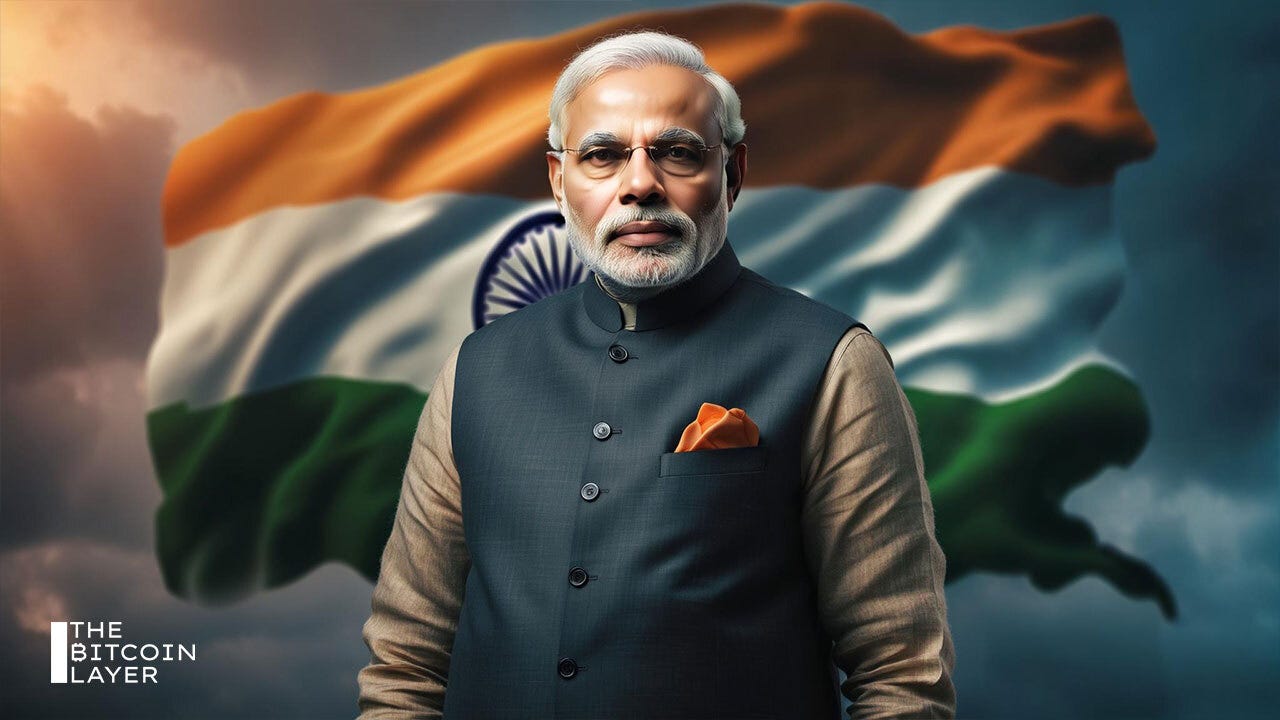Dear Readers,
It’s Thinking Time! Buckle up for a quick recap of global events. This week we cover India and its new trade agreement with the UK, its zero-for-zero tariffs deal with the US, and what looks like looming war with Pakistan.
TBL Thinks is our way to summarize the most important paywalled, longer reads relevant to global macroeconomics, helping you cut through the noise. With that in mind, please enjoy.
Looking for the perfect video to push the smartest person you know from zero to one on bitcoin? Bitcoin, Not Crypto is a three-part master class from Parker Lewis and Dhruv Bansal that cuts through the noise—covering why 21 million was the key technical simplification that made bitcoin possible, why blockchains don’t create decentralization, and why everything else will be built on bitcoin.
The Financial Freedom Report is a weekly newsletter from the Human Rights Foundation (HRF) that tracks how authoritarian regimes weaponize money to control their populations and suppress dissent. It also spotlights how freedom technologies like Bitcoin are helping everyday people reclaim their financial independence and freedom.
A one-of-a-kind newsletter connecting the dots between financial repression, geopolitics, and emerging tech.
Smart macro analysts don’t just watch the Fed. They watch the world.
UK & India Strike Deal - Tariff Reductions Across the Board
The UK and India struck a deal in the new trade era that is being brought about by President Trump. The free trade pact between the two countries comes after three years of negotiations and aims to increase bilateral trade by approximately $34B by 2040. The trade deal, which the Indian PM Modi called “ambitious and mutually beneficial,” will allow British firms to compete for Indian contracts and Indian workers to work in Britain more easily. British PM Starmer said that the trade deal would reduce barriers in a “new era of trade.”
The deal will also cut tariffs across the board, cutting Indian tariffs on 90% of product lines, with 85% of these becoming fully tariff-free within a decade. Whiskey and gin tariffs, currently at 150%, will be halved to 75% before going down to 40% after 10 years—there are unconfirmed reports that consumers of Johnny Walker cried happy tears in India upon hearing this news. India will also cut automotive tariffs from 100% to 10% on higher value cars, but will be subject to a quota, and will cut tariffs on British cosmetics, aerospace, medical devices, lamb, salmon, electrical machinery, soft drinks, chocolates, and biscuits. In turn, the UK will cut tariffs on footwear, clothes, some food products, cars, jewelry, and gems coming into the country from India.
Here’s what to expect from these lowered trade barriers:








